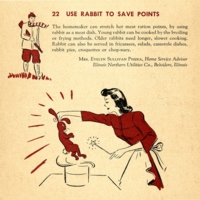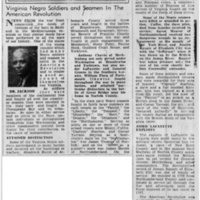The Great Depression and World War II
1929 - 1945

World War II helped not only to bring the nation out of the Depression, but also put the United States on the world stage as a superpower. Unlike previous administrations, both Roosevelt and President Harry S. Truman placed the United States on a path to leadership in worldwide conflicts and reform movements. The war changed the role of women as they entered the workforce while American men went to war. Events such as the bombing at Pearl Harbor, liberation of concentration camps, the use of atomic bombs, and the rise of the Soviet Union as a superpower shaped future American foreign policy.
Learn more in the National U.S. History Content Standards
Recently added items
Tuskegee Airmen in World War II, Photographs, ca. 1943
During World War II, Black Americans took the opportunity to point out the hypocrisy of engaging in a war effort to save democracy abroad while maintaining segregation laws at home. Spurred by the national newspaper, Chicago Defender, the Black…
Virginia Superintendent of Public Instruction Report, Teacher Census Excerpt, 1930
The legislation authorizing Virginia’s first statewide public school system in 1870 required that schools be racially segregated. The U.S. Supreme Court’s decision in Plessy v. Ferguson (1896) upheld southern segregation laws as long as facilities…
Segregated Schools in Amelia County, Newspaper articles
Virginia did not have a statewide system of public schools until after the Civil War. Before this, private academies and common schools were all that existed, but the Virginia General Assembly did authorize a “literary fund” that supplied counties…
Luther Porter Jackson—Highlighting Black History
The contributions of African Americans to the politics, life, and culture of the Commonwealth of Virginia have often been ignored in traditional histories and textbooks. Historian Luther Porter Jackson (1892–1950), however, researched and wrote…




